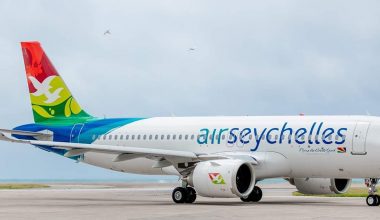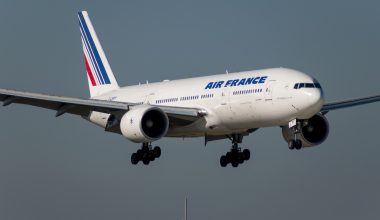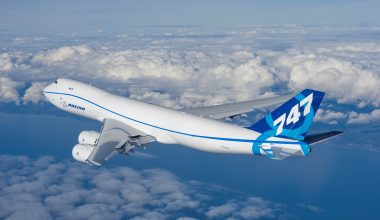The European aircraft manufacturer, Airbus, announced that their board had approved the development of a freighter version of its popular commercial variant A350 on July 29, 2021.
The Chief executive officer of Airbus, Guillaume Faury stated that the development plan would enhance the A350 product line with the dip in the freighter line responding to the customer feedback for the increased competition and efficiency in the freight carrier market segment. The new freight carrier will be based on the A350-1000, the longest fuselage version of the Airbus family, with a payload capacity of up to 90 tonnes.

World’s First Lightweight Freighter – A350 freighter
Airbus’s new A350 freight carrier from Airbus will be the first generation of carbon-fibre jets known for their lightweight and powerful performance. The composite panel is expected to give an advantage to the Airbus freighter compared to the barrel section used on the variants of Boeing.
The arrival of the world’s first lightweight carbon-fibre carrier has been envisioned to penetrate the freight-carrier segment dominated by the Boeing family. As even stricter emission standards are being implemented globally, the airlines that don’t fall under the regulations will be put out of service. Thus Boeing’s existing freighters that don’t meet the requirement will be out of commission as the new regulations on sound and emissions will be in motion from 2028,

Boeing 767 and 777 variants have already been restricted for any further deliveries as they don’t meet the emission standards for the future market, setting an exception for the carriers that can deliver 40% lower emissions than the planes they are replacing.
This will give the Airbus A350 carrier a competitive advantage as they have already begun their initial phase of work, foreseeing the demand and requirements of the future aviation market.
Strategic Decision To Dominate Freight Segment?
The Airbus family decided to manufacture the A350 product line after the demand for freighters from their customers. Due to the Covid-19 pandemic, different restrictions and travel bans have aided the e-commerce business to skyrocket. The need for the freight carrier has been abnormally high, responding to the blooming of the e-platforms in the pandemic world.
After seeing the market opportunity, Airbus decided to introduce the new freight carrier that is expected to give a fair share of competition for the existing freight carrier from Boeing. The Boeing family has dominated the freighter aircraft segments with its windowless cargo planes; it has a dedicated freighter fleet of 737, 747, 757, 767, and 777 that have been an absolute success in the cargo market.
But, the giant aircraft manufacturer hit a bump when the Boeing 777X passenger variant ran into some trouble amidst its certification process due to lack of data and preliminary safety assignment. The test flights for the aircraft discovered the flight control issues in the aircraft; most precisely, the nose of the jetliner swayed up and down without any international control of the pilot. So, the commercial aircraft Boeing 777X will likely not receive its flying certification until late 2023.

The twin-engined wide-body aircraft from Boeing has been in the works for years; the Boeing family’s strategic plan to build the B777X was announced in 2013 at the Dubai Airshow. The aircraft was supposed to enter service in the summer of 2020; however, the aircraft didn’t receive type certifications due to ongoing issues. However, Boeing is optimistic about fixing the problems and is hopeful of launching the freighter version of its new model B777X soon.
Airbus is planning for the debut of the new freighter aircraft in 2025; the Airbus family is yet to secure deals for the aircraft with any major airlines. However, in an interview in June 2021, the CEO of Qatar Airways, Akbar Al Baker, revealed that the airlines was keen on adding freighter planes in their fleet, interpreting the rise in demand for the air carrier in the post-pandemics world. He had also further stated that the airlines would be picking the freighter from either the Airbus A350 line or the Boeing 777X variant as soon as they are available.
So, now it is a race against the time, between the hold-up B777X aircraft that still has to undergo the freighter transmission and the Airbus A350 that has commenced its work, it is yet to be seen who takes the majority of the market.






